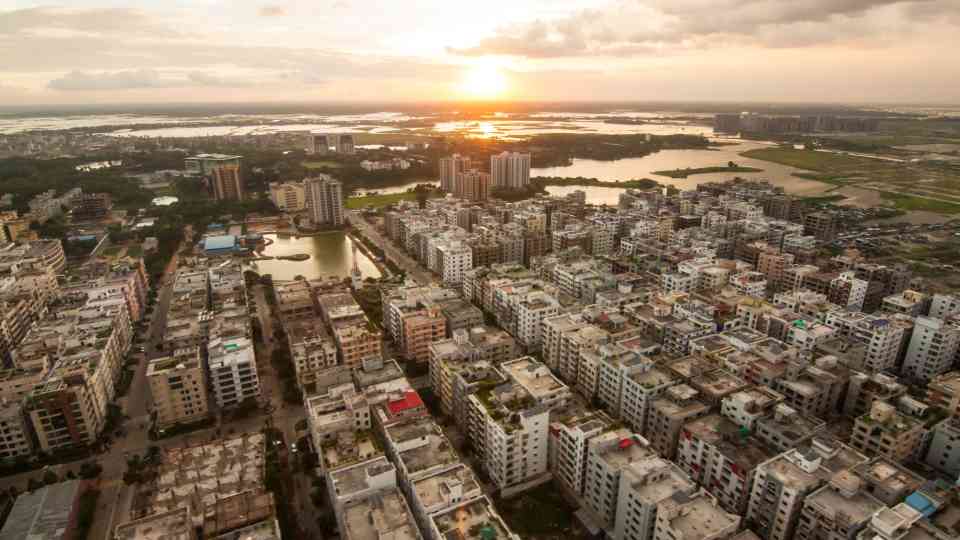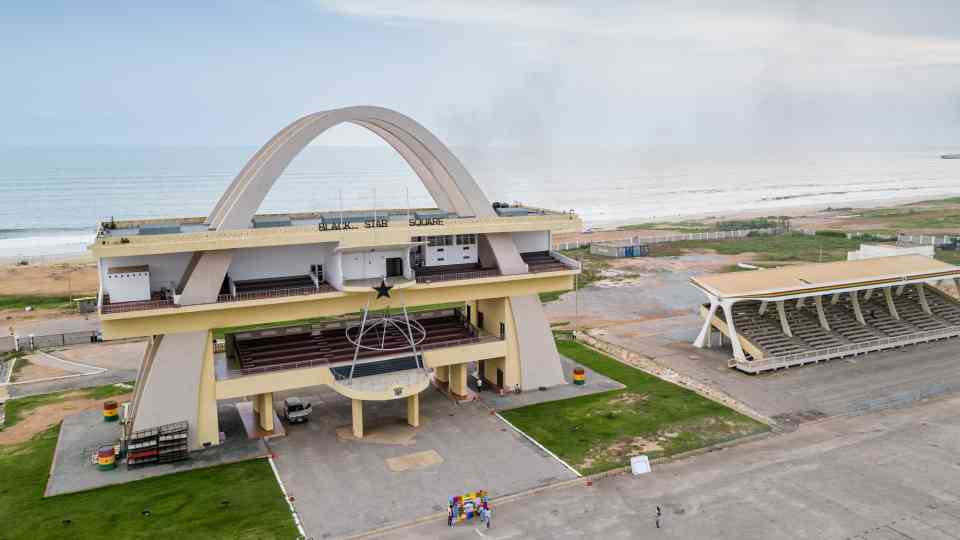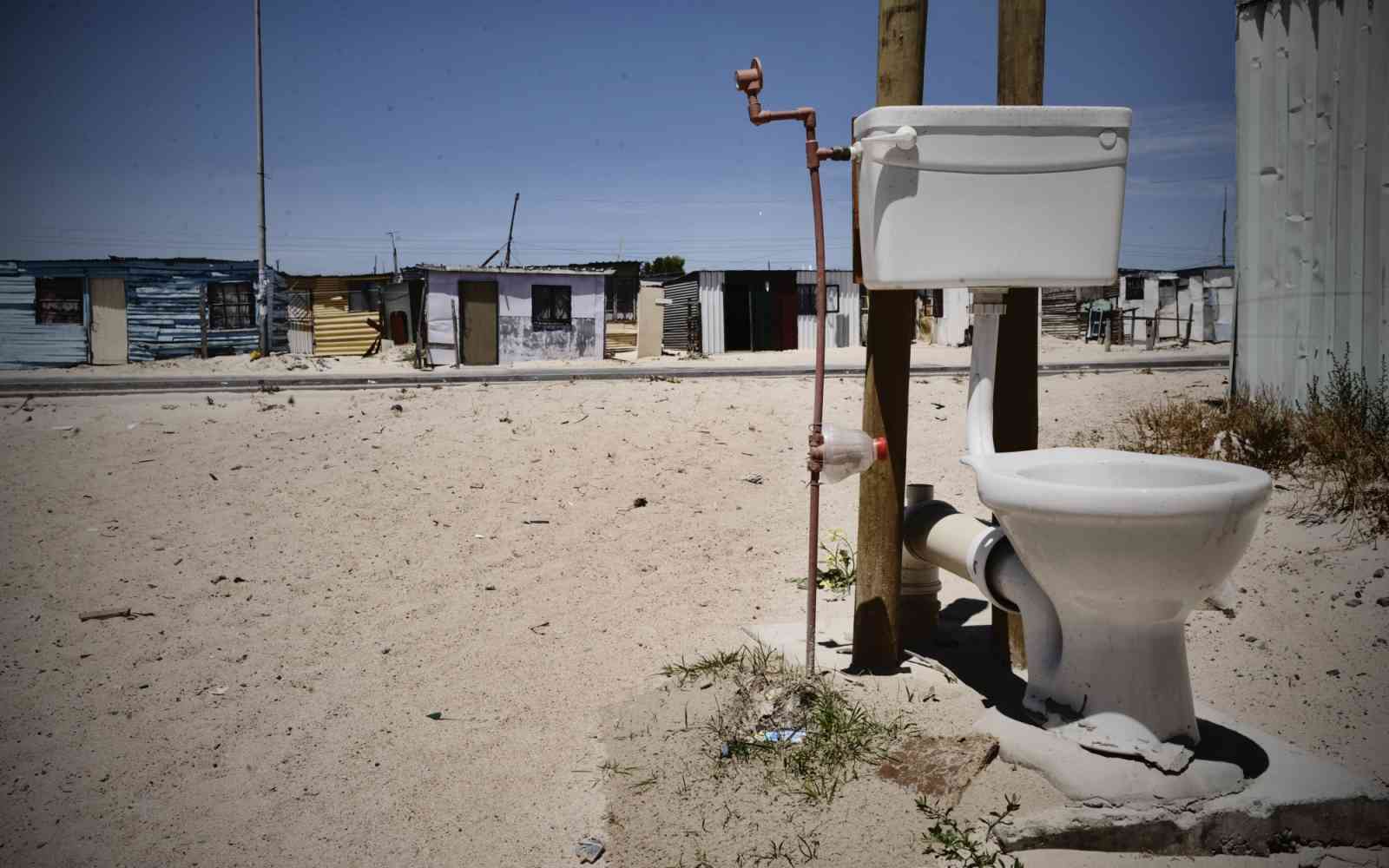The United Nations Office for Project Services (UNOPS)
Decarbonizing buildings is vital to climate action

We have to focus on buildings to help mitigate the impacts of climate change. Here's why – and how to do it.
Infrastructure is responsible for 79 per cent of all greenhouse gas emissions – and 88 per cent of all adaptation costs. In Europe alone, for example, the buildings sector represents almost 40 per cent of Europe’s energy demand – 80 per cent of it from fossil fuels.
And consider this: half of the buildings that will be standing in 2060 have not yet been built. Thanks to an expected building boom in the coming decades, Asia and Africa will account for the majority of that new construction.
Reducing greenhouse gas emissions caused by building materials and construction is vital in the fight for global climate action.
In order to cut greenhouse gas emissions as close to zero as possible (net zero) – as well as to avoid the worst impacts of climate change and to ensure a livable planet in the future for all – we must think differently about how our cities and communities are planned, built, renovated and used.
Improving the sustainability of the construction industry represents a huge opportunity to mitigate the impact of climate change and achieve net zero while ensuring affordability and inclusion, and supporting the achievement of the Sustainable Development Goals.
How? By decarbonizing and improving the resilience of the built environment.
Governments at all levels have the ability to influence the construction sector: from materials extraction and supply chains to their buildings portfolio, public infrastructure, land use planning – and more. In short, they, together with other stakeholders are key to net zero infrastructure.
Decarbonization is complex, involving multiple stakeholders from both the public and private sectors. To support a key objective of the Climate Action Pathways, UNOPS produced guidance and a toolkit for the development of global and regional climate action roadmaps for the buildings and construction sector. This activity was undertaken as part of the UN Environment Programme-hosted Global Alliance for Buildings and Construction (GlobalABC) and completed with funding from Germany's Federal Ministry of Economic Cooperation and Development.
The global and regional roadmaps provide comprehensive frameworks for national, regional and local governments to achieve zero-emission, efficient and resilient buildings, helping to decarbonize the buildings and construction industry by 2050.
The roadmaps support governments with setting and including ambitious targets related to buildings and construction in their Nationally Determined Contributions (efforts by each country to reduce national emissions and adapt to the impacts of climate change) and country strategies.
The roadmap development guidance and supporting tools focus on five action areas (strategic priorities, urban and spatial development, new buildings, existing buildings and construction supply chain) and four objectives (zero embodied carbon, zero operational carbon, resilience, and inclusion and wellbeing). It includes several suggestions for meeting decarbonization goals, such as promoting the use of low-carbon materials, increasing access to clean energy, and building resilience for buildings and communities, among other recommendations.
Climate Action Roadmaps for Buildings and Construction
The GlobalABC roadmaps cover a whole life-cycle approach to the construction value chain. But these roadmaps are just the beginning, the first step on the journey towards reducing carbon emissions and achieving net zero.
The roadmaps are a solid foundation – but the implementation of the country priorities identified by the roadmaps is the real opportunity for impact. And that's where UNOPS expertise comes in.
In Ghana and Bangladesh, for example, UNOPS is developing and delivering in-country demonstration projects to showcase the added benefits of the approaches highlighted in the roadmaps – and to show how they could be applied locally.
Around the world, UNOPS implements sustainable infrastructure and construction projects on behalf of governments, non-governmental organizations and UN organizations. Our expertise in implementation can be used to ensure that these roadmaps don't just sit on someone's desk – we can help turn the pathways laid out in the roadmaps into concrete reality.
- This article was originally published on 29 November 2023. Some of the information has been updated.
Alicia Regodon Puyalto and Geoffrey Morgan
Alicia Regodon Puyalto is an Infrastructure and Project Management Senior Analyst with UNOPS Strategic Initiatives team, which focuses on advancing sustainable, resilient and inclusive infrastructure. She has more than 10 years of experience in buildings and construction in both the public and private sectors. She holds a PhD in buildings and technology, and aims to merge research and practice to promote strategies in support of sustainable built environments.
Geoffrey Morgan is the Team Lead for Sustainable, Resilient and Inclusive Infrastructure with UNOPS Strategic Initiatives team. He works to support governments with meeting their climate and development goals by utilizing sustainable, resilient and inclusive infrastructure. He is a chartered civil engineer and has experience working on projects in Africa, Asia, the Middle East and Latin America.















